

Emergency rooms in Jefferson County logged more than 3,800 substance-related visits in 2024, with opioids and alcohol driving most admissions. Those numbers make one thing clear: waiting another week isn’t an option.
Louisville Addiction Center (LAC) offers same- or next-day placement for St. Matthews residents, pairing medical detox referrals with therapy that treats addiction and mental health together.
From the first phone call to aftercare, you’ll find whole-person, dual diagnosis support just minutes from home.
Kentucky lost 1,410 people to overdoses in 2024, and local hospitals report a steady climb in alcohol-related admissions. Yet St. Matthews itself has only a handful of inpatient beds, leaving many residents to manage detox alone.
Louisville Addiction Center’s nearby campus fills that gap with physician-led care, 24/7 nursing, and seamless step-downs that keep momentum strong.
The following overview shows how our programs guide clients from crisis stabilization to long-term recovery without leaving the Louisville metro.
Substances hijack the brain’s reward circuitry, flooding it with dopamine until tolerance rises and dependence forms. Addiction goes beyond physical need; it’s a compulsive pattern that persists despite harm.
Risk skyrockets when genetics, early trauma, or untreated anxiety and depression enter the mix. Knowing these drivers helps tailor treatment that rewires thought loops, reduces cravings, and replaces self-medication with healthier coping skills.
ore than half of people with substance use disorders also battle PTSD, bipolar disorder, or chronic anxiety. This “dual diagnosis” feeds relapse: untreated flashbacks or mood swings push clients back to drugs or alcohol for quick relief.
Louisville Addiction Center counters that cycle with psychiatrist-led teams who treat both conditions in the same week—med adjustments, CBT, DBT, and EMDR under one roof—rather than sending clients to separate providers who rarely coordinate care.
Recovery unfolds in stages, so our step-down model matches structure to progress. Clients transfer smoothly from one level to the next—no waitlists, no paperwork repeats—while case managers arrange daily shuttles between St. Matthews and our Louisville facility.
Whether you enter after a hospital detox or through our walk-in assessment, each tier provides targeted therapy, medication management, and family involvement, keeping you engaged until sobriety sticks.

Detox is the medically managed clearing of drugs or alcohol from your body; rehab is the longer-term counseling and skill-building that follows. During detox, the brain and nervous system rebound after months or years of chemical suppression, and that rebound can be dangerous.

When cravings keep overruling your best intentions, sheer willpower rarely carries you to the finish line. That’s why drug treatment in Louisville at Louisville Addiction Center pairs accredited clinicians with evidence-based therapies, turning the turmoil of active use into a clear, step-by-step path to lasting sobriety.

Our partial hospitalization program (PHP) is the most common level of care that we have to offer. Our PHP program for substance abuse treatment in Louisville, KY offers intensive care as well as a flexible schedule that will allow our clients to remain plugged into normal life. During our PHP in Louisville, Kentucky, our clients are in our program for 30 days.

Following PHP, clients might need to continue treatment while getting back to everyday life. Our intensive outpatient program (IOP) offers treatment for several hours throughout the week, yet with more flexibility than PHP. That way, clients can begin to use the skills they learn while tending to other obligations, like family, school, or work.

The outpatient program during Louisville rehab is the least restrictive program we offer. Often, clients meet with a therapist or group for about one hour per week. Most clients in our outpatient program have the skills needed to stay healthy outside of treatment. Yet, they still need to refine their recovery skills in the real world with professional support and guidance.

At Louisville Addiction Center, we offer rehab for veterans in Louisville, Kentucky. As a veterans addiction treatment center, we provide TRICARE addiction treatment for veterans. Veterans have unique needs when it comes to substance abuse and mental health disorders. We understand that and offer specialized treatment.
Louisville Addiction Center weaves together proven and practical tools for durable change.
Core sessions use Cognitive Behavioral Therapy to reframe thought loops, Dialectical Behavior Therapy for emotion regulation, and EMDR to neutralize trauma triggers.
Holistic add-ons—mindfulness drills, yoga-based movement, and one-on-one nutrition coaching—repair the body-mind connection eroded by substance use.
Family therapy invites loved ones into goal-setting and boundary work, while trauma-informed groups create a safe arena to practice new coping skills. Layered together, these elements help clients build resilience that lasts long after formal programming ends.
Recovery thrives on local connection.
Daily AA and NA meetings convene at church basements across Shelbyville Road; Celebrate Recovery gathers every Thursday night at Baptist East; and Saturday SMART Recovery workshops meet in the public library’s community room.
The Jefferson County Health Department hosts monthly naloxone trainings and maintains 24-hour medication-disposal kiosks.
Pairing these grassroots supports with Louisville Addiction Center’s aftercare groups extends accountability: attend therapy by day, reinforce lessons at night, and surround yourself with peers who understand the journey.
During a brief, five-minute intake, staff confirm your clinical needs and verify insurance benefits on the spot, so you know deductibles, co-pays, and out-of-pocket maximums up front. Louisville Addiction Center works with most major commercial insurers—including Aetna, Anthem Blue Cross Blue Shield, Cigna, UnitedHealthcare, and others—and can explain coverage in minutes.
If you’re paying out of pocket, the team provides a clear price list and lets you spread payments with interest-free plans. Outpatient services can usually start within a day of your assessment, so care never sits on hold. If getting to the East Market Street campus is tricky, staff can set up a ride—removing one more hurdle between you and recovery.

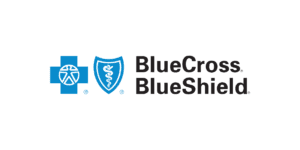
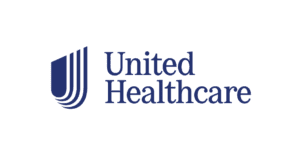

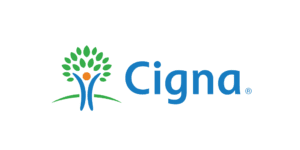

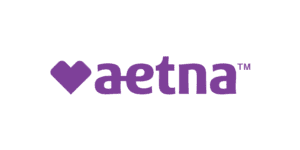
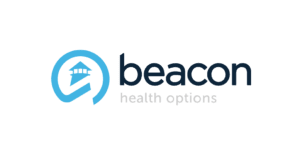
Get Family Support Now
We understand addiction affects the whole family. Our comprehensive family program helps rebuild trust and restore relationships.
Weekly Family Therapy Sessions
Educational Workshops
Support Groups
Communication Skills Training
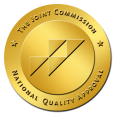

Centers for Disease Control and Prevention. (2025, June 9). Heroin. Overdose Prevention. U.S. Department of Health & Human Services. Retrieved August 22, 2025, from https://www.cdc.gov/overdose-prevention/about/heroin.html
Centers for Disease Control and Prevention. (2025). Understanding the opioid overdose epidemic. Overdose Prevention. U.S. Department of Health & Human Services. Retrieved August 22, 2025, from https://www.cdc.gov/overdose-prevention/about/understanding-the-opioid-overdose-epidemic.html
Centers for Disease Control and Prevention, National Center for Health Statistics. (2025, March 17). FastStats – Drug overdoses. Retrieved August 22, 2025, from https://www.cdc.gov/nchs/fastats/drug-overdoses.htm
Kentucky Office of Drug Control Policy & Kentucky Injury Prevention and Research Center. (2025). 2024 Kentucky drug overdose fatality report. Commonwealth of Kentucky. Retrieved August 22, 2025, from https://odcp.ky.gov/Reports/2024%20Drug%20Overdose%20Fatality%20Report.pdf
Centers for Disease Control and Prevention. (2025, August 7). SUDORS dashboard: Fatal drug overdose data. U.S. Department of Health & Human Services. Retrieved August 22, 2025, from https://www.cdc.gov/overdose-prevention/data-research/facts-stats/sudors-dashboard-fatal-overdose-data.html
Kentucky Justice & Public Safety Cabinet. (2023). Gov. Beshear: Overdose deaths decline for second-straight year. Commonwealth of Kentucky. Retrieved August 22, 2025, from https://justice.ky.gov/News/Pages/24overdosefatalityreport.aspx

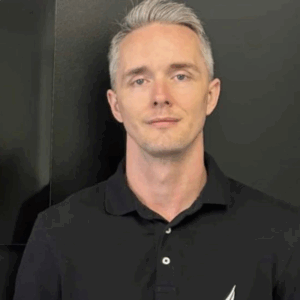

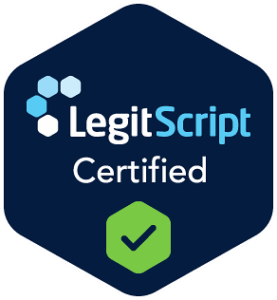
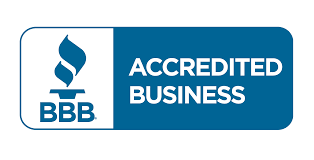


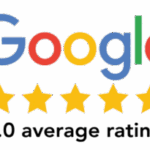

Centers for Disease Control and Prevention. (2025, June 9). Heroin. Overdose Prevention. U.S. Department of Health & Human Services. Retrieved August 22, 2025, from https://www.cdc.gov/overdose-prevention/about/heroin.html
Centers for Disease Control and Prevention. (2025). Understanding the opioid overdose epidemic. Overdose Prevention. U.S. Department of Health & Human Services. Retrieved August 22, 2025, from https://www.cdc.gov/overdose-prevention/about/understanding-the-opioid-overdose-epidemic.html
Centers for Disease Control and Prevention, National Center for Health Statistics. (2025, March 17). FastStats – Drug overdoses. Retrieved August 22, 2025, from https://www.cdc.gov/nchs/fastats/drug-overdoses.htm
Kentucky Office of Drug Control Policy & Kentucky Injury Prevention and Research Center. (2025). 2024 Kentucky drug overdose fatality report. Commonwealth of Kentucky. Retrieved August 22, 2025, from https://odcp.ky.gov/Reports/2024%20Drug%20Overdose%20Fatality%20Report.pdf
Centers for Disease Control and Prevention. (2025, August 7). SUDORS dashboard: Fatal drug overdose data. U.S. Department of Health & Human Services. Retrieved August 22, 2025, from https://www.cdc.gov/overdose-prevention/data-research/facts-stats/sudors-dashboard-fatal-overdose-data.html
Kentucky Justice & Public Safety Cabinet. (2023). Gov. Beshear: Overdose deaths decline for second-straight year. Commonwealth of Kentucky. Retrieved August 22, 2025, from https://justice.ky.gov/News/Pages/24overdosefatalityreport.aspx









Hear directly from those who have walked the path to recovery. Our patients’ stories highlight the compassionate care, effective programs, and life-changing support they’ve experienced. Let their journeys inspire you as you take your first steps toward healing.
Louisville Addiction Center is helping people in Kentucky overcome addiction and mental health challenges.

















